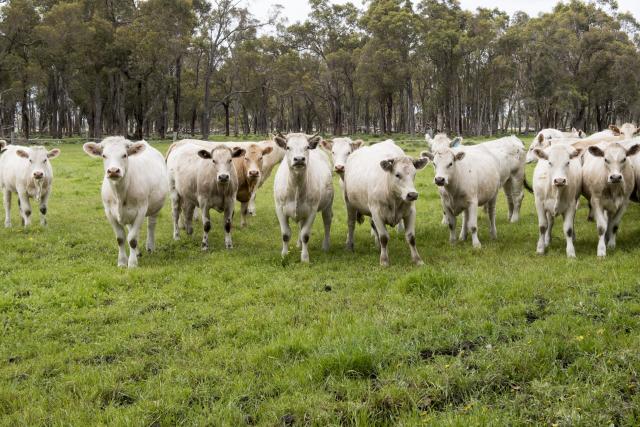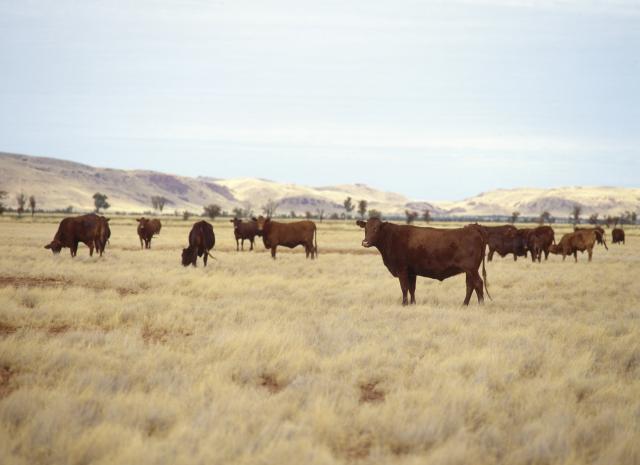Transporting Livestock from seasonally dry areas
With some parts of the Kimberley and Pilbara experiencing above average temperatures and below average rainfall for the 2018/19 wet season, please remember that you may need to move livestock away from areas where feed sources are becoming inadequate. However, you must give careful consideration to whether animals are not strong enough to make the planned journey. If this is in doubt, they should be managed onsite.
The producer is primarily responsible for deciding which animals can be transported but transporters also have a role to play. Drivers are responsible for the welfare of the livestock on their vehicle for the entire trip. Ultimately, if there is any doubt about an animal’s ability to withstand the journey, it should not be transported.
To help make the correct decision, the Department of Primary Industries and Regional Development has published two useful guidance documents – Welfare decisions for beef cattle and Welfare decisions for sheep. These documents show how to assess animals that are in body condition score 1 and decide whether they are suitable for transport. They also advise on managing such animals onsite.
In addition to the body condition score, it is important to take account of other factors relating to individual animals (e.g. pregnant animals or unweaned young), as well as the environmental conditions (e.g. very hot or dusty conditions) and the location and accessibility of handling and resting facilities.
Under the Animal Welfare Act 2002 (Act), animals that are unfit for a journey should not be transported. Transporting animals that are too weak to complete the journey is an offence under the Act and may be the subject of investigation by animal welfare inspectors.
By planning carefully and respecting legal requirements, producers and transporters can minimise the risk of animal welfare problems.
For more information on Codes of Practice for livestock during transport, and other animal welfare related matters, please see the department’s website.
Calculating and monitoring breeder mortality
A new online resource is available to help pastoralists calculate breeder cow mortality and highlights the latest information on management strategies and interventions to reduce breeder mortality.
The Department of Primary Industries and Regional Development’sNorthern Beef Development team, has recently published comprehensive information on breeder cow mortality which can be found on the FurtureBeef projects webpage.
Breeder mortality is accepted as one of the key influences affecting the productivity and profitability of northern pastoral enterprises. It also affects the industry’s ability to maintain high animal welfare standards. With forward planning and good management, breeder cattle should exit the herd as strong and healthy cull cows – converting an opportunity cost into an animal welfare and financial gain.
Pastoralists in the North recently benefited from a visit by the department’s Northern Beef Development team who travelled to four cattle stations in the Kimberley to assist pastoralists calculate their breeder mortality rate. Travelling with the team was Dr Geoff Neithe, Research coordinator from Meat and Livestock Australia (MLA). (Read more about the experience and lessons learnt from the teams visit on Ruby Plains Station).
The trip highlighted the importance of having accurate and reliable records in order to effectively use the breeder mortality calculator developed by MLA.
Once breeder mortality has been calculated, the next step is to consider which strategic intervention will be the most beneficial and cost effective to your business. To help with the decision making, a suite of free online programs are available on the FutureBeef website. Pastoralists are welcome to contact FutureBeef officers for assistance.
FutureBeef is a collaborative project for the northern Australia beef industry with partners DPIRD, Queensland Department of Agriculture and Fisheries, Northern Territory Department of Primary Industry and Resources, , and Meat & Livestock Australia.
Celebrating WA Aboriginal women in agriculture on International Women's Day

International Women’s Day is celebrated every year on 8 March to celebrate the social, economic, cultural and political achievements of women worldwide. The day has been celebrated for over a century with the first event held in 1911.
This year, the Department’s Aboriginal Economic Development (AED) program is sharing the story of two inspiring women from Yallalie Downs - the first Aboriginal cattle backgrounding business in WA. The farm is managed by young Aboriginal women, Lexine Mourambine and Madeline Anderson.
Lexine is the operations manager and can be found out on the property with the cattle, day in and day out, while Madeline handles the books and finances, keeping on top of the business side of things.
Yallalie Downs, owned by Beemura Aboriginal Corporation (BAC), is a 1200ha farm, located, 263km north of Perth. In 2014, Lexine left her public sector job to work on the property full time with grandfather, Kevin Barron.
The farm was not set up to run cattle - BAC has tried producing sheep and horticulture and over the last four years, with support from the department’s AED program, BAC has become a profitable and sustainable cattle backgrounding business.
Producers send cattle to Yallalie to reach a required weight on Yallalie pastures. The cattle are managed on behalf of the owner, who generally pays for this service on a weight gain basis. Over the last few years, Lexine has had a crash course in all things cattle backgrounding, including animal husbandry, low stock stress handling and cell grazing.
Lexine completed a Low Stock Stress (LSS) Handling course with Bruce Maynard in early 2018. Working with the cattle and using her LSS skills is now her favourite part of working on the property. Lexine uses their nine cell paddocks and laneways to fatten up to 600 cattle at a time.
Calm cattle are integral to this process andshe does her best to get new cattle acclimatised to the property and relaxed as soon as possible after their arrival. Seeing a change in the cattle compared to when they arrive on the property is the best reward Lexine could ask for.
Madeline, a mother of two, returned to Yallalie earlier this year with her 11 year old daughter, whilst her 12 year old son attends boarding school in Perth. She has been assisting Lexine with the finance and book work for Yallalie for years from Perth.
Now that Madeline lives on the farm, she can assist with all aspects of the business, including their corporation governance. This involves compliance with the Office of the Registrar of Indigenous Corporations and the organisation of directors meetings and annual general meetings for members. She is loving life on the farm where she is able to put her creative side to use.
AED staff have accompanied the women to several Indigenous pastoral workshops at various locations in Australia over the last few years and they were soon nicknamed the ‘power duo’ by other participants. The workshops, and networks made at this year’s Rural, Regional, Remote Women’s Network (RRR Network) conference, presented Lexine and Madeline the opportunity to make lifelong contacts with other producers.
Yallalie is continually opening new opening new doors, and was the location of a trial of the department’s new LanzaTM tedera variety, launched late last year.
Lexine and Madeline welcome a challenge and AED staff hope to continue supporting and assisting them to tap into new learning opportunities on the horizon.

Case a reminder to check stock

A man has been fined $3000 in Kalgoorlie Magistrates Court after being convicted in February of cruelty under the Animal Welfare Act 2002, relating to a bull with an ingrown horn.
In January 2017, a Department of Primary Industries and Regional Development inspector from the Livestock Compliance Unit identified the injured bull during an inspection at the Muchea Livestock Centre.
The bull had been transported from a pastoral property in the Goldfields. The ingrown horn had penetrated the skull by 9cm on one side and the wound was infected.
The offender was convicted of one charge of failing to take reasonable steps to alleviate harm to an animal.
Department principal compliance inspector Charlotte McIntyre said it was reasonable to expect that an ingrown horn such as this should have been identified and treated when the animal was yarded. This prosecution follows a number of convictions for similar offences in 2018.
It is essential that animals are observed regularly to pick up an injury or illness before it becomes severe. If something is identified, it needs to be promptly treated. The department has a number of useful fact sheets and videos available that assist livestock producers with ensuring their animals receive appropriate standards of care.
You can also find out more about the department’s animal welfare responsibilities online.
To report suspected cruelty to animals, contact the RSPCA on 1300 278 3589.


